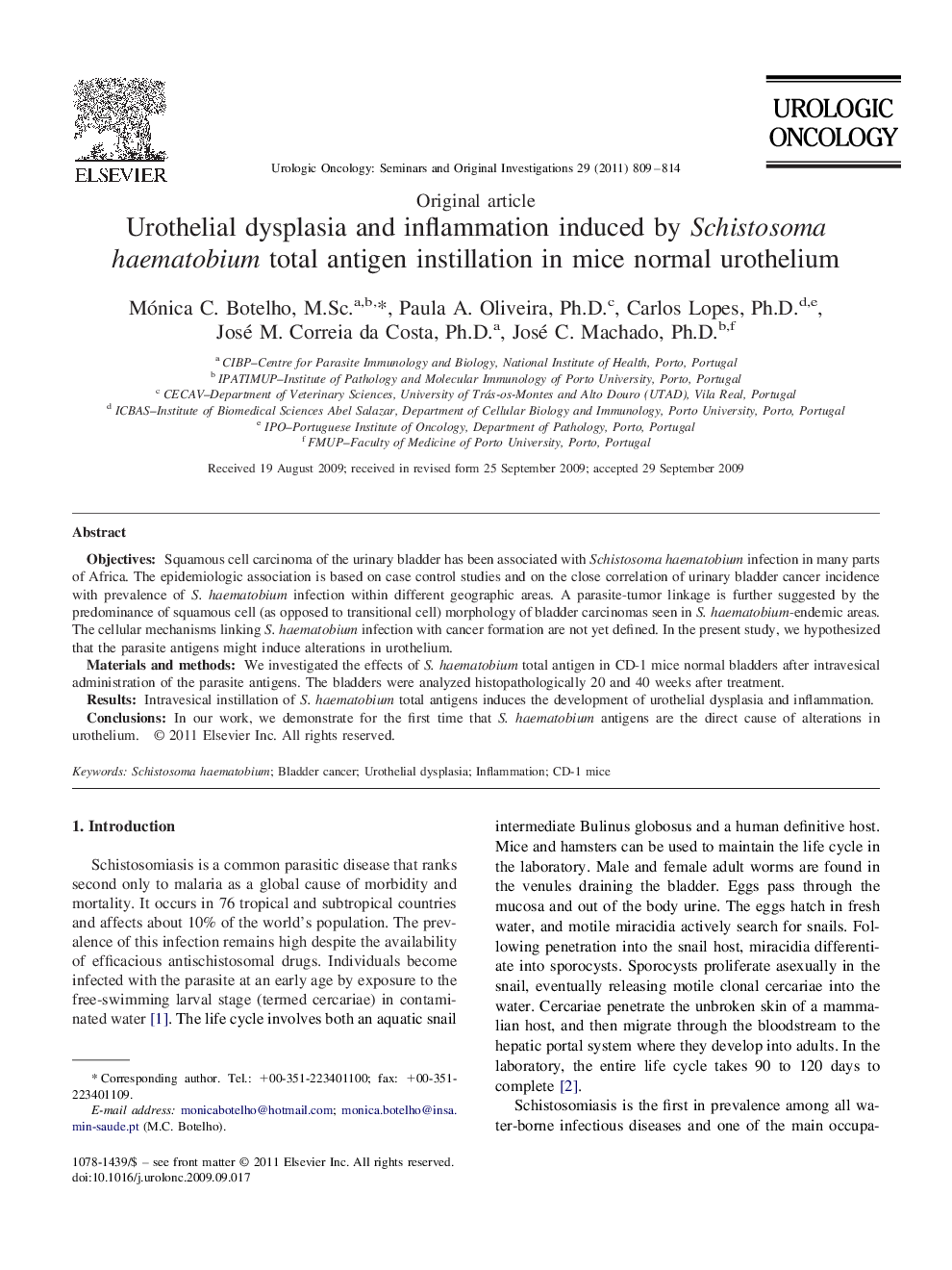| Article ID | Journal | Published Year | Pages | File Type |
|---|---|---|---|---|
| 4000323 | Urologic Oncology: Seminars and Original Investigations | 2011 | 6 Pages |
ObjectivesSquamous cell carcinoma of the urinary bladder has been associated with Schistosoma haematobium infection in many parts of Africa. The epidemiologic association is based on case control studies and on the close correlation of urinary bladder cancer incidence with prevalence of S. haematobium infection within different geographic areas. A parasite-tumor linkage is further suggested by the predominance of squamous cell (as opposed to transitional cell) morphology of bladder carcinomas seen in S. haematobium-endemic areas. The cellular mechanisms linking S. haematobium infection with cancer formation are not yet defined. In the present study, we hypothesized that the parasite antigens might induce alterations in urothelium.Materials and methodsWe investigated the effects of S. haematobium total antigen in CD-1 mice normal bladders after intravesical administration of the parasite antigens. The bladders were analyzed histopathologically 20 and 40 weeks after treatment.ResultsIntravesical instillation of S. haematobium total antigens induces the development of urothelial dysplasia and inflammation.ConclusionsIn our work, we demonstrate for the first time that S. haematobium antigens are the direct cause of alterations in urothelium.
